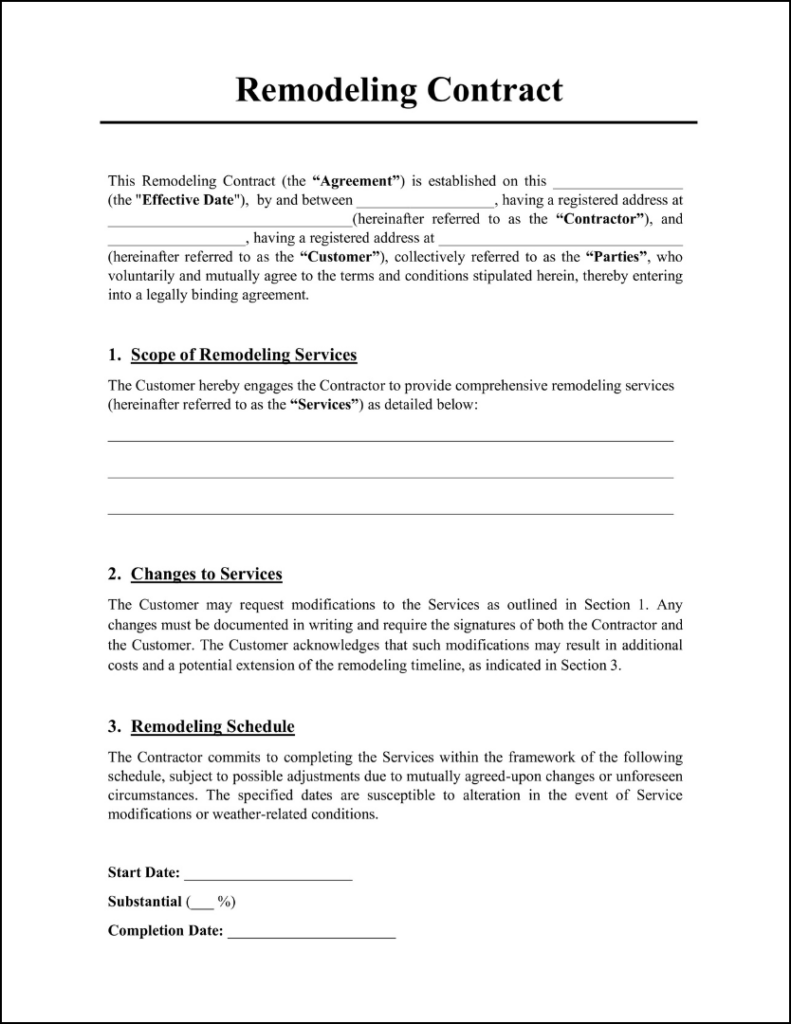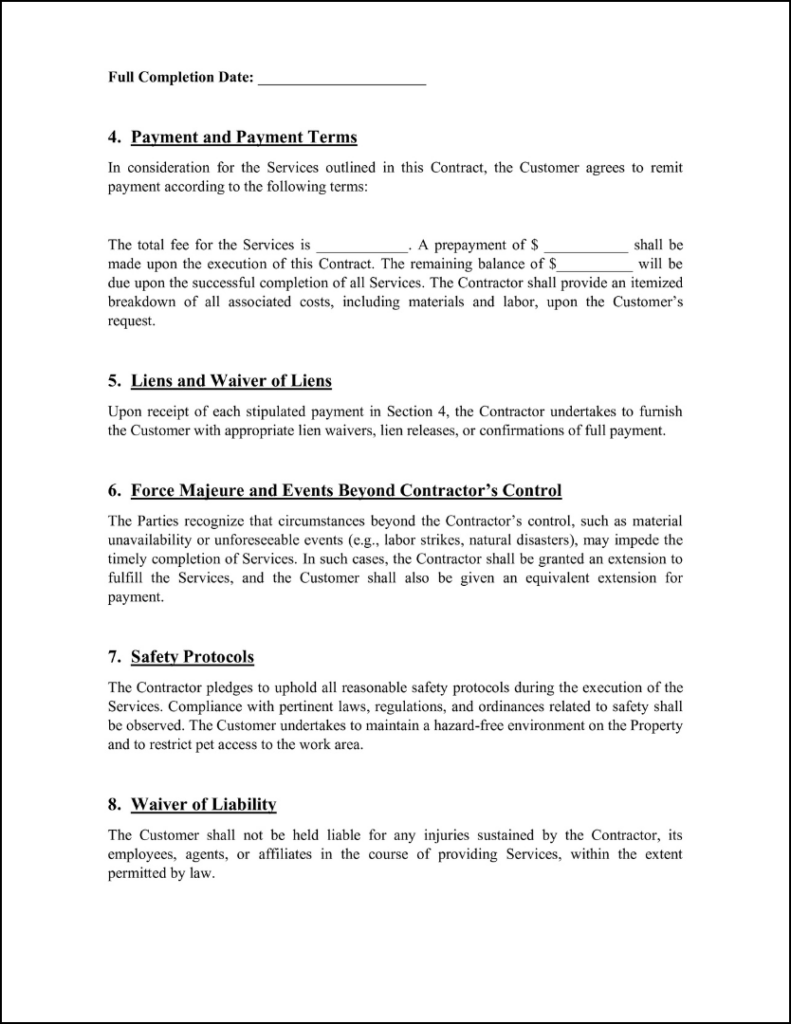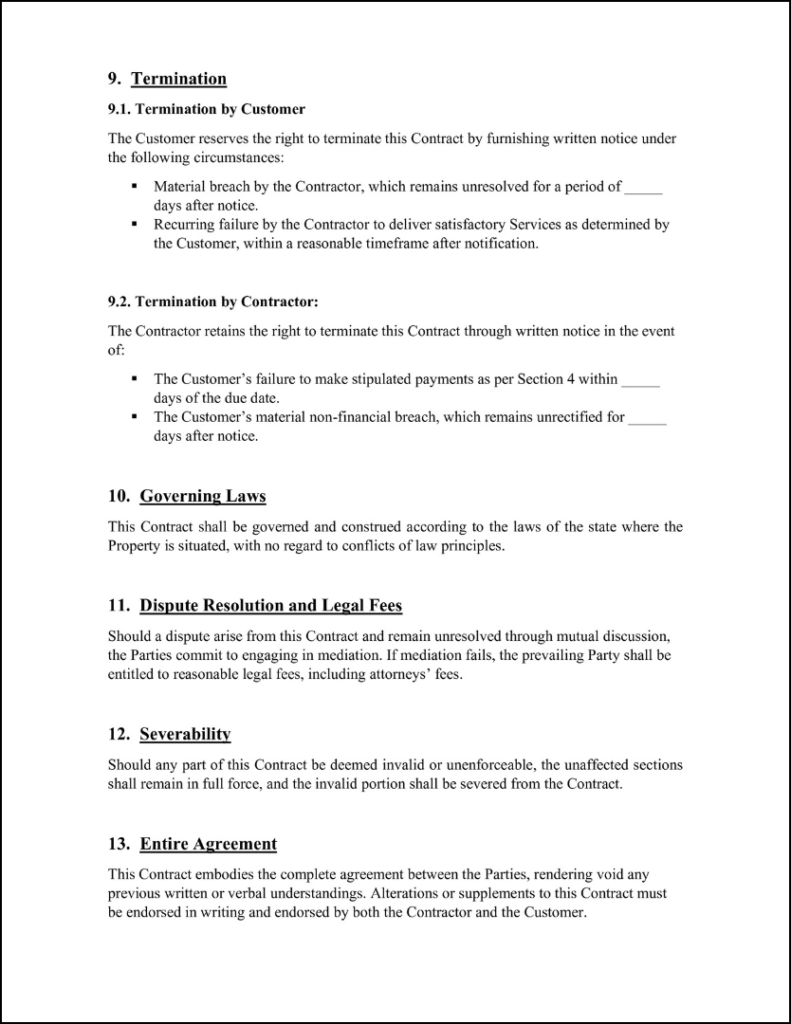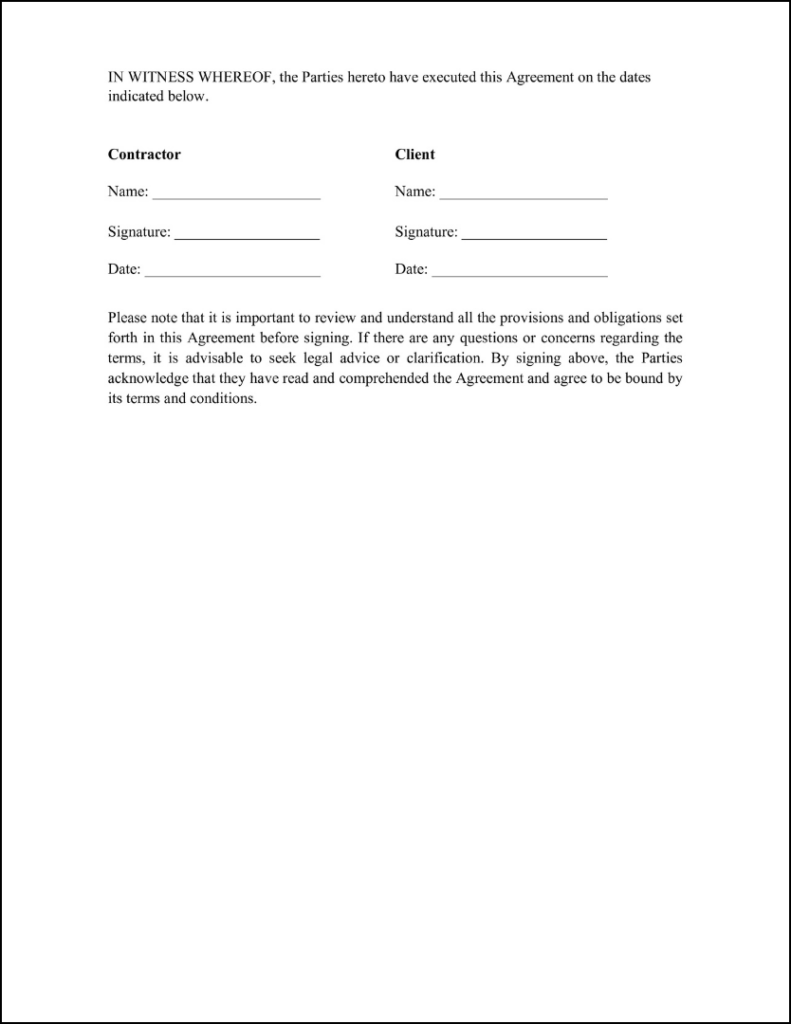Remodeling Contract Template
Undertaking a remodeling project can be an exciting venture, breathing new life into your home and enhancing its value. However, to ensure a smooth and successful renovation, it is crucial to have a well-drafted remodeling contract in place.
Our template also incorporates industry best practices, ensuring that you leave no stone unturned and that your remodeling project proceeds without any hiccups. So, wait no more! Download our Remodeling Contract Template today and set yourself on the path to a successful and hassle-free remodeling experience.
What is a Remodeling Contract?
A Remodeling Contract is a legally binding document that sets out the terms and conditions between you, the homeowner, and the contractor hired to carry out the remodeling project. This crucial agreement goes beyond a mere handshake, providing clarity and protection for both parties involved. It ensures that everyone is on the same page regarding project expectations, timelines, costs, and deliverables. A well-crafted Remodeling Contract acts as a safety net, preventing potential disputes and misunderstandings, and serves as a valuable reference throughout the project’s duration.
Typically, a Remodeling Contract covers the following aspects:
- Project Scope
- Timeline
- Payment Terms
- Materials and Equipment
- Permits and Licenses
- Insurance and Liability
- Change Orders
- Dispute Resolution
Free Editable Remodeling Contract Sample
Access our free Remodeling Contract sample to safeguard your interests. Download now and take proactive steps toward a secure Remodeling Contract at no cost.
Why is a Remodeling Contract Important?
A Remodeling Contract holds paramount importance in any remodeling project. This legally binding document serves as a safeguard for both homeowners and contractors, ensuring a smooth and successful renovation journey. Let’s delve into why a Remodeling Contract is an indispensable tool for any remodeling endeavor.
1. Clarity and Protection
A Remodeling Contract brings clarity to the project by outlining the terms and conditions agreed upon by both parties. It clearly defines the scope of work, project timelines, payment schedules, and responsibilities. This level of clarity helps prevent misunderstandings and disputes, protecting the interests of all parties involved.
2. Avoiding Disputes
By detailing every aspect of the project, a Remodeling Contract minimizes the potential for disagreements and conflicts. Should any issues arise during the remodeling process, the contract acts as a reference point to resolve disputes in a fair and structured manner.
3. Professionalism and Commitment
Signing a Remodeling Contract demonstrates a commitment to professionalism and accountability. It shows that both the homeowner and the contractor take the project seriously and are dedicated to fulfilling their obligations as outlined in the contract.
4. Project Scope and Timelines
With a clear project scope and well-defined timelines in the contract, all parties know what is expected. This clarity helps the project progress smoothly, ensuring that milestones are achieved on time.
5. Financial Protection
The Remodeling Contract includes payment terms, so there are no surprises regarding costs or payment schedules. This financial transparency protects both parties from unexpected financial burdens.
6. Materials and Quality Assurance
The contract specifies the materials and equipment to be used in the remodeling, ensuring that the project meets the desired quality standards. It provides assurance that the agreed-upon materials will be used, avoiding any potential deviations.
7. Permits and Legal Compliance
If permits and licenses are required for the remodeling project, the contract can address who will obtain them and ensure compliance with local regulations.
8. Change Orders and Flexibility
While remodeling projects may encounter changes along the way, the contract can establish clear procedures for handling change orders. This allows for flexibility while maintaining structure and preventing unauthorized modifications.
Best Practices When Creating Your Remodeling Contract
When creating your Remodeling Contract, it’s crucial to follow best practices to ensure a comprehensive and effective agreement that protects both parties involved. By incorporating these essential guidelines, you can enhance the clarity and professionalism of your contract:
1. Clearly Define the Project Scope
Leave no room for ambiguity when describing the remodeling work to be performed. Include specific details about the areas to be renovated, the materials to be used, and any other pertinent project specifications.
2. Establish Realistic Timelines
Set achievable deadlines for different stages of the project. Clearly outline the start date and the expected completion date to keep the remodeling process on track.
3. Specify Payment Terms
Clearly outline the payment schedule and methods of payment. Include details about any upfront deposits or milestone payments to be made throughout the project.
4. Detail Materials and Equipment
Clearly state the types and brands of materials and equipment to be used in the remodeling project. This ensures that both parties are in agreement about the quality and specifications of the materials.
5. Obtain Necessary Permits
Address the responsibility for obtaining any required permits and licenses for the remodeling project. Specify who will handle the paperwork and associated costs.
6. Include Change Order Procedures
Define a process for handling any changes or modifications to the original contract. This ensures that any alterations to the project scope or budget are agreed upon by both parties in writing.
7. Address Insurance and Liability
Clearly outline the insurance coverage and liability for the project. This includes liability for property damage, workers’ compensation, and any other relevant insurance matters.
8. Include Dispute Resolution Mechanisms
Establish a process to handle any potential disagreements or disputes that may arise during the course of the project. Clearly outline the steps to resolve conflicts amicably.
9. Compliance with Local Laws and Regulations
Ensure that the contract complies with all local laws, building codes, and regulations. This helps avoid legal issues and ensures that the remodeling project meets all necessary requirements.
10. Review the Contract with Legal Counsel
Although not mandatory, having the contract reviewed by a lawyer can provide an extra layer of assurance and legal expertise. This helps ensure that the contract protects your interests and is legally sound.
11. Get Signatures from All Parties
Once the contract is finalized, make sure that all parties involved sign the document. This includes both the homeowner and the contractor, indicating their agreement to the terms and conditions.
By adhering to these best practices, you can create a comprehensive and well-structured Remodeling Contract. This not only protects the interests of all parties involved but also sets the foundation for a successful and smoothly executed remodeling project. Remember, a carefully crafted contract is an invaluable tool for any renovation endeavor.
FAQs Related to Remodeling Contract Template
Remodeling Contract Sample Preview
Below is the downloadable sample of a Remodeling Contract:
Disclaimer: Please note that the samples provided here are intended to serve as a helpful resource and should not be considered legal advice. It is important to consult with a qualified attorney or legal professional to ensure that any modifications or usage of these templates align with the specific laws and regulations applicable to your jurisdiction and circumstances. BunnyDoc disclaims any liability or responsibility for the consequences arising from the use or customization of these templates. It is the responsibility of the users to review and adapt these templates to their specific needs, and to seek legal counsel for their particular circumstances.



